
Joseph Kudzin Sr. (Shorty) - by Joe Kudzin, Tsawwassen
Prior to World War II, I understand that my father joined the Polish resistance who were trying to prevent Germany and, Russia who threatened to occupy Poland. On September 1, 1939, the Germans invaded Poland and essentially rounded up all of the military leaders and killed most of them. Approximately two weeks later, Russia joined Germany and invaded Poland as well, rounding up Polish citizens, military, and people in the underground - any able bodied person they could find - and sent them to concentration camps in Siberia. Joseph, as part of the underground, was turned in by another Polish citizen who may have been fearful of reprimand. These individuals were sent to one of the several concentration camps via rail in cattle cars.It is estimated that up to one million Polish citizens- men, women and children - were deported to Russia in this time.
The concentration camp Joe was imprisoned in, was a logging camp and he spent two years working there. On at least one occasion, he nearly lost his life, slipping off of a mass of logs floating on the river. Most of the prisoners in these camps were treated horribly or were tortured. Many starved to death. Shorty would not talk about this time but I know that forty years later, he still hated eating rice and raisins, and at one point admitted that these foods reminded him of the gruel they were given which was often infested with bugs. He also said they were rationed only one bone a month which they could use to make soup. My dad said that when he finally was released, he had lost close to 100 lbs.
In 1941, due to British pressure, the Soviet Union broke away from Germany and agreed to release tens of thousands of Polish prisoners-of-war held in Soviet camps. Many liberated POWs, including my Dad, joined Anders' Army, a primarily Polish army, that was created in the Soviet Union. This army evacuated Russian in 1942 and traveled south, across the Caspian Sea, through Iran, to Palestine and ending up fighting in Northern Africa. My Dad had kept a number of photos and postcards taken in Egypt and Jerusalem. Here they were transferred to the authority of British Eighth Army and fought against German Commander Rommel in the desert wars in Egypt. Joe's "dog tags ”were issued from the British Armed forces and indicated his blood type, name, date of birth and religious affiliation. My Dad fought here for two years. I have discovered through his documents and metals, that he served in the 23 rd Transport company and that he had a license to operate armored vehicles and tanks. He ended up with the rank of staff sergeant. This information was also included on the medal he received from fighting at Monte Cassino.
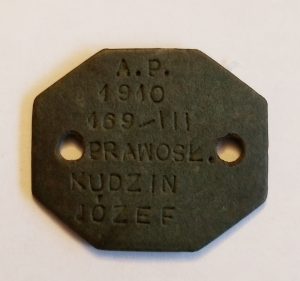 |
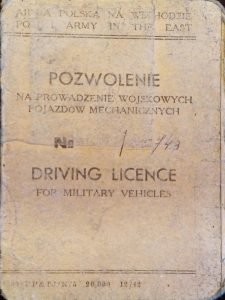 |
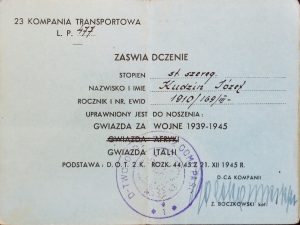 |
In 1943, when the German army was defeated in north Africa, the British Eighth Army, moved to Italy. Here they joined their allies from Canada, the US and France, to fight against Mussolini in the Italian campaign. They first fought in Sicily and after taking back the island, they moved on to the mainland and fought in the famous battle at Monte Cassino. Tens of thousands of Polish soldiers were slaughtered alongside thousands of Canadians, in a battle that waged for two years. In the end allied forces triumphed.
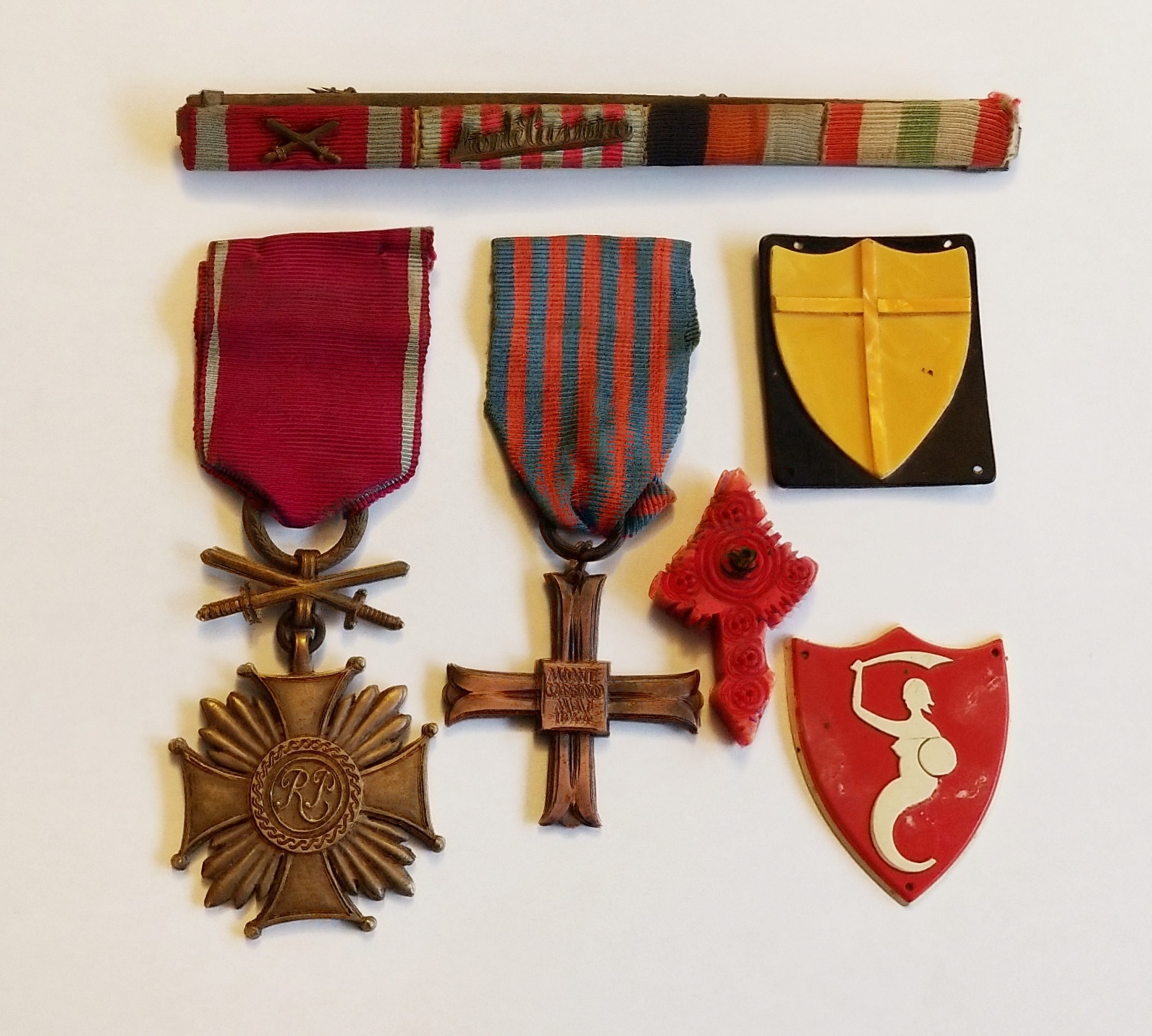
After the success of the battle, Joe went to Venice and I have some pictures of him and other soldiers in St. Mark's Square.
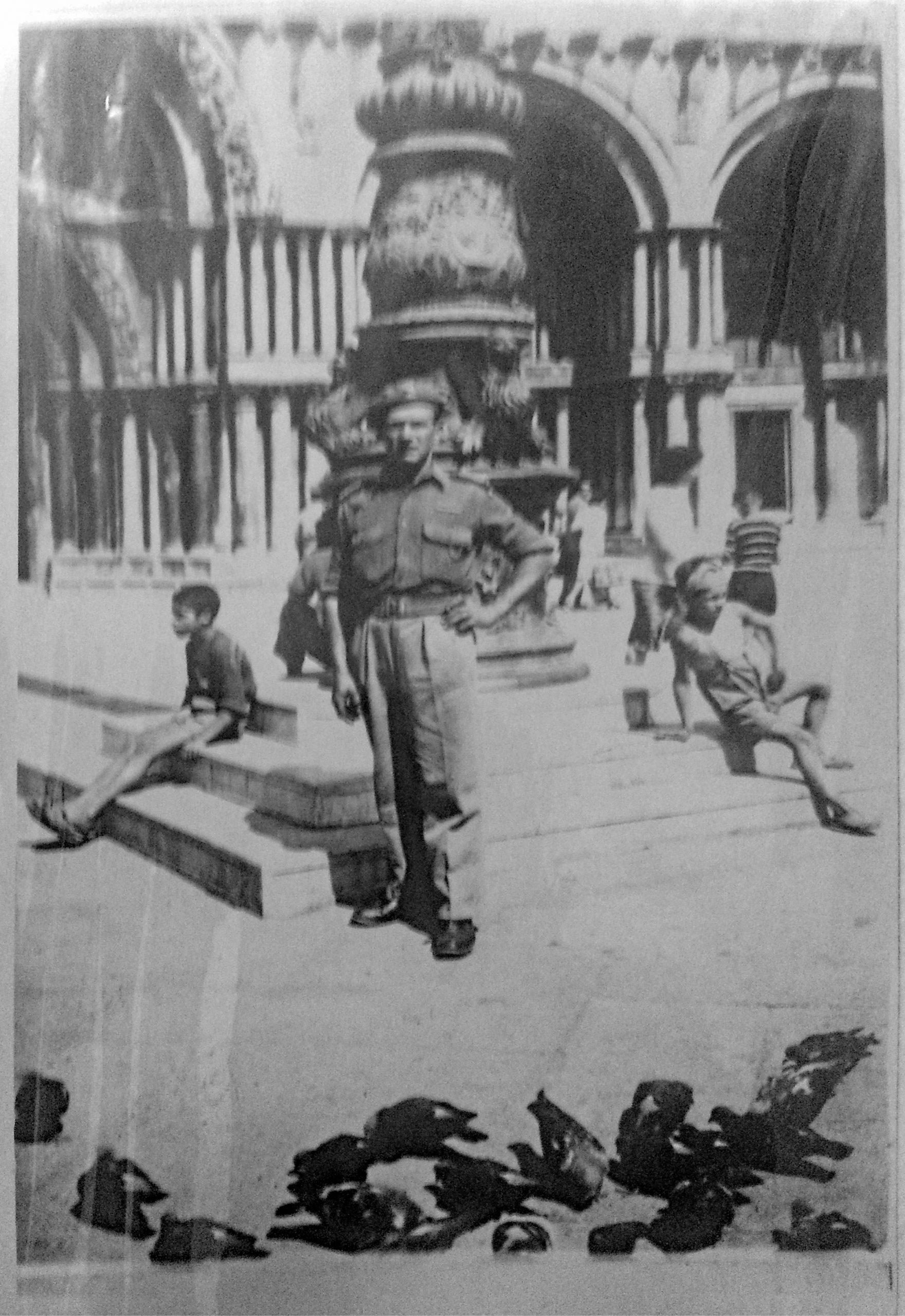 |
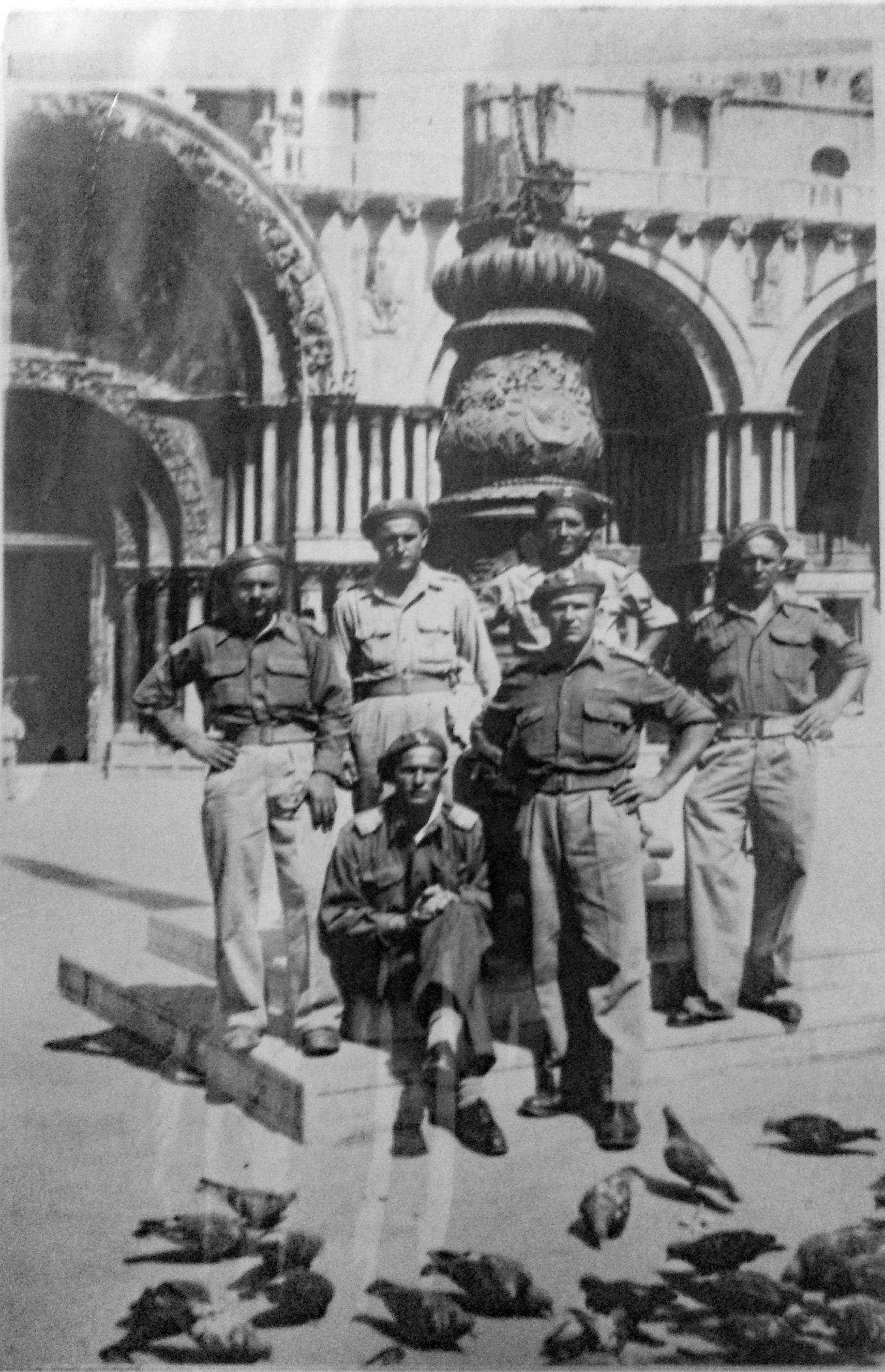 |
When the war ended, unfortunately, the US and Britain negotiated that Poland would be returned to Russian control. My dad always maintained that they were sold out by Great Britain and the US and today, many historians are uncovering this ugly truth of what really happened to Poland.
The Polish soldiers like my Dad, didn't have a country to return to - they became DPs, displaced persons. The Polish soldiers were offered five different countries that they could emigrate to: Britain, US, Canada, Australia and Italy. My dad chose to come to Canada. I like to think it might have been because of the Canadian soldiers he fought alongside with. The Canadian government paid their way to Canada, conditional on the person repaying the money, by working on farms. My dad ended up in Cochrane Alberta and worked on a farm there for a two year period. He then went to work in the town of Canmore, Alberta, building the road to Spray Lakes.
While working there he learned of a Polish family living close by with the name of Kamenka. This was a family name his parents in Poland knew, so he contacted this family and ended up meeting my mother, Helen, who he married in 1951. In February 1956, he became a Canadian citizen. I know this because of a rather interesting coincidence. When I moved out with my family to Tsawwassen, in the 1990s, a friend who was a member of South Delta Baptist Church called one day as they had found a “citizenship Bible” in their library. It was inscribed to Joseph Kudzin and belonged to my Dad. Somehow this Bible which was presented on the date he became a citizen, had made its way from Alberta to our new home in Delta, 40 years later. My father had never been to BC.
| Mon: | 9:30 AM - 4:00 PM |
| Tue: | 9:30 AM - 4:00 PM |
| Wed: | 9:30 AM - 4:00 PM |
| Thu: | 9:30 AM - 4:00 PM |
| Fri: | 9:30 AM - 4:00 PM |
| Sat: | Closed |
| Sun: | Closed |